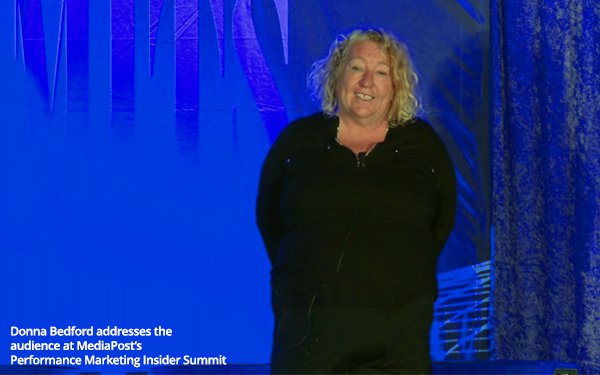Commentary
Why Mac Became So Special To Lenovo's Global SEO Lead
- by Laurie Sullivan , Staff Writer @lauriesullivan, June 4, 2025

Prompt engineering has become the key to training AI large language models (LLMs) on internal data sources, rather than having it rely on data with inherent bias found across the web.
“Some of the prompts we use are 40, 50, 60 lines long,” Donna Bedford, global SEO strategy and operations lead at Lenovo, told Performance Marketing Insider Summit attendees on Wednesday. “You want to stay human, be honest. I’m pretty good at breaking most chatbots.”
In fact, Bedford broke American Airlines’ chatbot several times, and Lenovo’s when the company first started using one. She said people are more accepting of chatbots, until it takes too long to get to a person when needed. Many companies rush to add a chatbot, but she suggests slowing down and making sure they test, test, and test some more.
advertisement
advertisement
Mac, Bedford’s chatbot, is “really good, but he gets things wrong. I always ask him to define his sources and show me the page.”
Don’t get this chatbot's name confused with Apple’s brand Mac. After all, she works at Lenovo.
Bedford also wrote about Mac in her latest book, Feeling Seen by a Machine: SEO, AI, and
Neurodiversity in a Digital World That Wasn’t Built for Us, published in May. It’s a book about “lived experiences, search behavior, digital systems, and the moments when those
systems fail people who think differently.”
For years Bedford has been an SEO professional, but late in life she received an ADHD diagnosis. She also developed a “deep
curiosity about why some digital tools work so well for neurodivergent people -- and others push us away.”
“For decades, neurodivergent people -- people with ADHD, autism,
dyslexia, and other cognitive differences -- have been adapting to systems that weren’t built with us in mind,” she wrote in the book’s prologue. “We mask. We compensate. We
self-regulate, self-edit, self-sort. All to make sense of platforms, websites, interfaces, and search engines that assume a very specific, very linear way of thinking.”
When her
world shifted, so did technology, with LLMs like ChatGPT. For the first time, she believes a system “could follow” the way she thinks, not perfectly, but without judgment.
This meant major changes for her work in SEO, after spending years helping people find brands on the web. She’s decoded search engines, structured content, and built systems that align with the way people look for answers.
“I’ve obsessed over rankings and traffic, sure - but I’ve also studied what search behavior reveals about ‘how people think.’” she
wrote. “That obsession became something more when I started realizing just how many digital tools and systems are designed for a very narrow definition of ‘user.’”
AI changed how she engages with information, she said, and ChatGPT was the first system that didn’t make her feel as if she did things all wrong.



